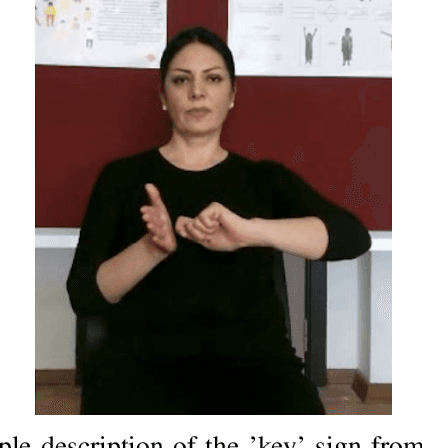SkelCap: Automated Generation of Descriptive Text from Skeleton Keypoint Sequences
Paper and Code
May 05, 2024



Numerous sign language datasets exist, yet they typically cover only a limited selection of the thousands of signs used globally. Moreover, creating diverse sign language datasets is an expensive and challenging task due to the costs associated with gathering a varied group of signers. Motivated by these challenges, we aimed to develop a solution that addresses these limitations. In this context, we focused on textually describing body movements from skeleton keypoint sequences, leading to the creation of a new dataset. We structured this dataset around AUTSL, a comprehensive isolated Turkish sign language dataset. We also developed a baseline model, SkelCap, which can generate textual descriptions of body movements. This model processes the skeleton keypoints data as a vector, applies a fully connected layer for embedding, and utilizes a transformer neural network for sequence-to-sequence modeling. We conducted extensive evaluations of our model, including signer-agnostic and sign-agnostic assessments. The model achieved promising results, with a ROUGE-L score of 0.98 and a BLEU-4 score of 0.94 in the signer-agnostic evaluation. The dataset we have prepared, namely the AUTSL-SkelCap, will be made publicly available soon.
 Add to Chrome
Add to Chrome Add to Firefox
Add to Firefox Add to Edge
Add to Edge